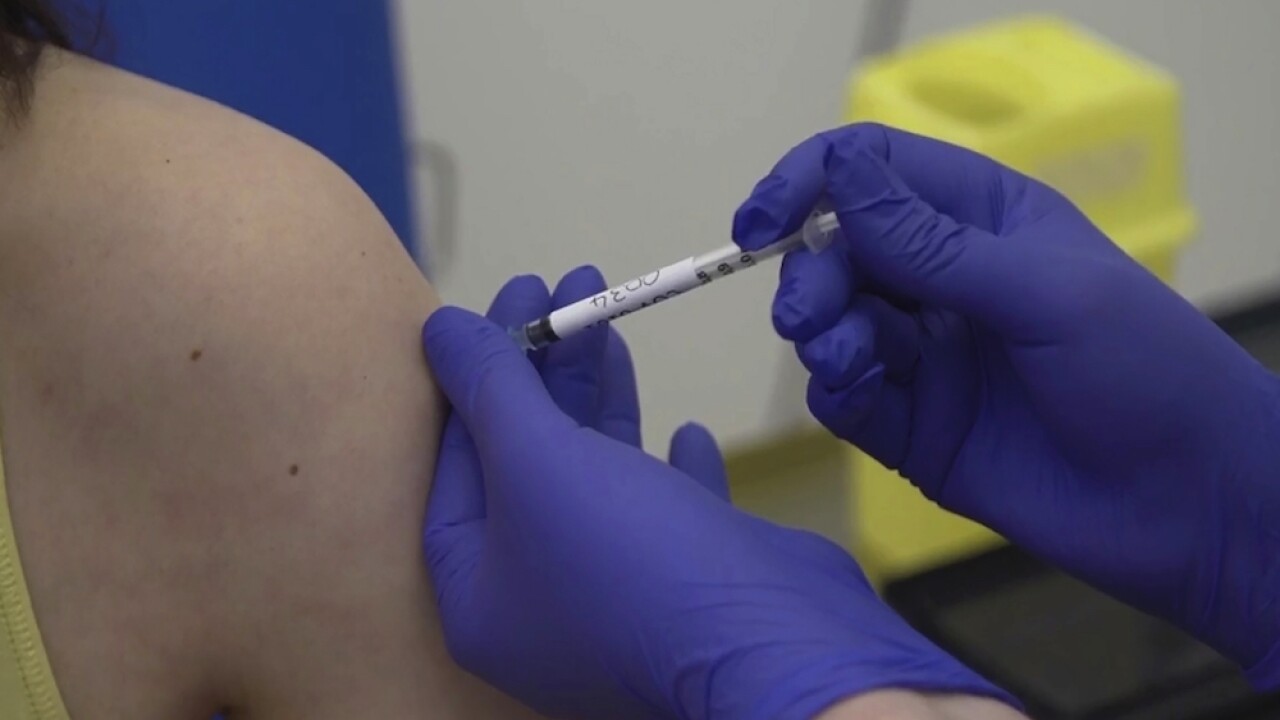SAN DIEGO (KGTV) — The Food and Drug Administration has released new guidelines to vaccine makers with added safety measures that experts say will push back the timeline, making the release of a COVID-19 vaccine before the election highly unlikely.
The guidelines lay out what it will take for companies to secure a fast-tracked authorization for a vaccine, known as an emergency use authorization or EUA.
The new guidelines require vaccine makers to follow the volunteers in their clinical trials for a median of two months after their final dose.
It’s an important step to see if anyone has a bad reaction, says Dr. Christian Ramers of Family Health Centers of San Diego.
“Some of the safety issues that people like me are concerned about might take months actually to develop,” Dr. Ramers said. “My analysis of this is that it's the FDA standing up and saying, ‘We're going to adhere to our rigorous scientific process.’”
The White House had resisted the new guidelines from the FDA for more than two weeks. After their release, President Trump described them as a “political hit job.”
“New FDA Rules make it more difficult for them to speed up vaccines for approval before Election Day. Just another political hit job!” the president wrote on Twitter Tuesday night.
It’s hard to gauge exactly how the two-month buffer affect the vaccine timeline because clinical trials do not start all at once; volunteers are enrolled on a rolling basis. But Dr. Sydney Wolfe of the consumer group Public Citizen said the drug makers have offered clues.
“The companies one-by-one are saying, ‘We can’t get anything in until the end of November or the end of December or the beginning of January,’ and that’s a relief,” he said.
In a clinical trial, half of the volunteers get the vaccine and half get a fake drug called a placebo.
The updated guidelines require companies to have an estimated effectiveness of at least 50 percent, meaning there are 50 percent fewer cases of infection in the group receiving the vaccine compared to the placebo group.
The guidelines also instruct companies to have a plan to continue collecting data in their clinical trial even after they get an EUA and the vaccine hits the market.
“The worst thing that could happen here is something meets that minimum bar of 50% efficacy, meaning it works pretty well, but then the bottom just falls out from these clinical trials and we don't get the information we need,” he said.
Dr. Ramers was initially skeptical of fast-tracking a vaccine with an EUA rather than waiting for full approval since it’s only been done once before, but he’s supportive of the process under the updated guidelines.
“I think that's the best way to balance speed and safety,” he said.
Still, experts like Dr. Wolfe think going with an EUA over a full approval could backfire. He points out the new guidelines allow up to half of the people in the clinical trial to be tracked for less than two months after their final dose.
“All things aren’t equal [between an EUA and full approval] because you don’t have all the information and B, people know that,” he said.
Dr. Wolfe is concerned the public will be reluctant to roll up their sleeves and embrace the vaccine if it just has an emergency authorization. Now that the FDA has made the EUA guidelines more rigorous, he thinks waiting for full approval might take just a few more months.
The FDA’s new guidance notes that an Oct. 22 meeting of its Vaccines and Related Biological Products Advisory Committee will not be to discuss specific vaccine candidates.
Trump previously said he would consider overruling the FDA on its vaccine guidelines in hopes of speeding up the process. There is both health and economic pressure for a vaccine to be developed as the coronavirus continues to claim an average of 800 US lives a day, according to Johns Hopkins University data.
However, Dr. Wolfe said the possibility of the president overruling the FDA is unlikely to have an impact now because the vaccine developers themselves have indicated they will follow the FDA guidelines.
Additional reporting by Justin Boggs




